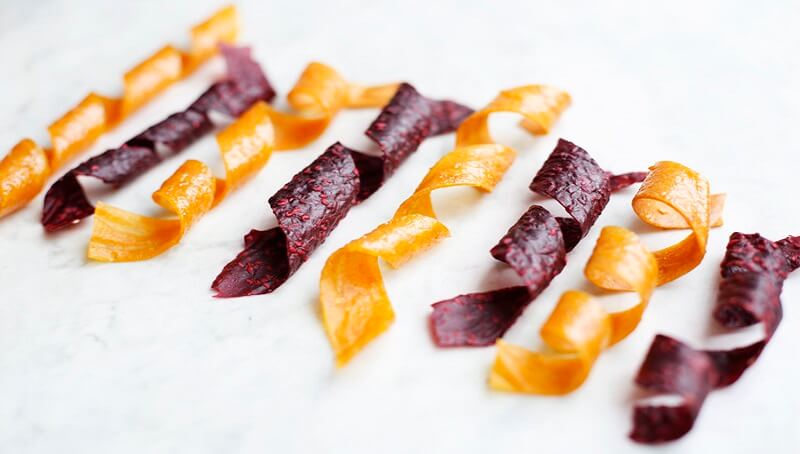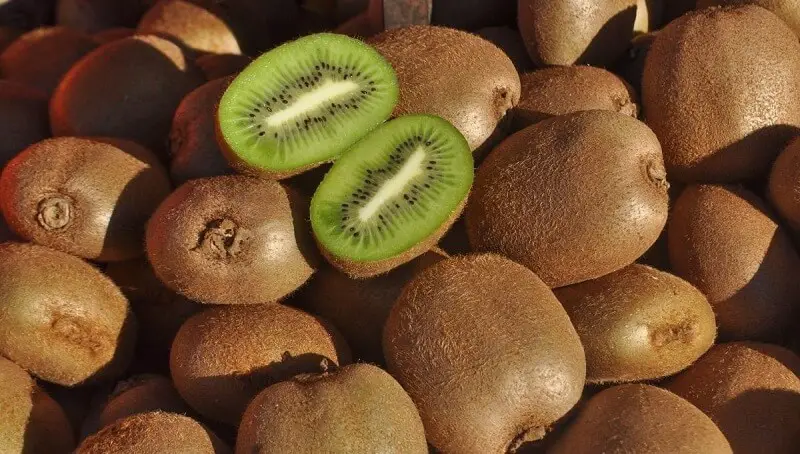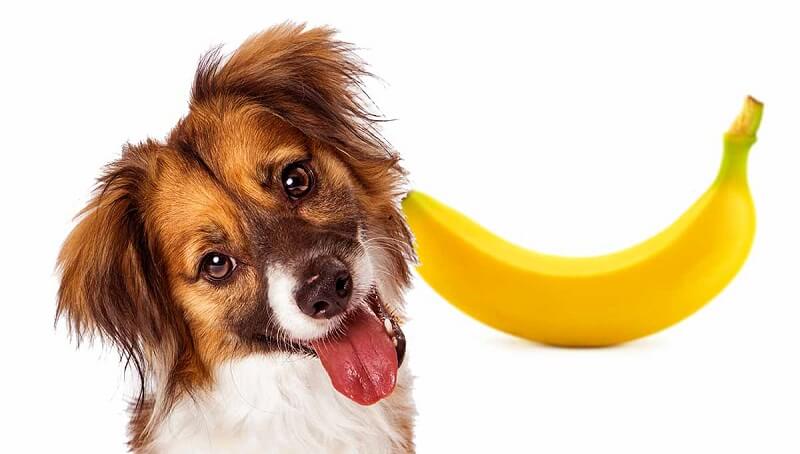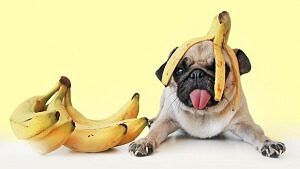
Can Dogs Eat Fruit Roll-Ups? What are The Risks?
March 24, 2022
Can Goats Eat Mango? Any Risks or Benefits?
March 25, 2022
Bananas are the most cultivated tropical fruit in the world and have been a part of people’s diet for thousands of years. Thanks to their content of many beneficial nutrients, we are also tempted to give them to our furry pet, even if just one slice of banana when we eat.
The question is: Are dogs allowed to eat bananas or not?
Yes, dogs can eat bananas! They are a great snack for your dog, full of essential nutrients and vitamins. Besides their health benefits, bananas are very tasty and dogs really love them.
Bananas are some of the fruits allowed for dogs because they are a major source of dietary fibers that contribute to the proper functioning of digestion and can even improve some symptoms of the gastrointestinal tract.
You might also like my articles about whether dogs can eat fruit roll-ups, cherry pie, or bacon bits.
They also contain numerous flavonoids and polyphenols (lutein, alpha, and beta-carotene, zeaxanthin) and strong antioxidants fighting free radicals (i.e., neutralizing some toxic chemical compounds in the body).
How much banana can I give my dog?
Dogs are allowed to eat bananas, but in moderation, not in very large quantities. The daily dose of banana for dogs is 1 cm of banana for every 5 kg of the dog’s weight!
If they are eaten in moderation, following the recommended doses, they are even beneficial to the dog’s body. They are an important source of antioxidants, vitamins, and minerals!
What other fruits can dogs eat?
There are fruits that even veterinarians recommend to be added to the diet of dogs. Below we will list the fruits that are particularly healthy for your dog’s body:
Apples: Contain vitamins and fibers. Once inside the body, the pectin changes the water content of the poop, increases its viscosity, so it can be used to treat constipation as well as diarrhea. The pectin also washes the toxins inside the body. Apples also contain essential vitamins such as beta-carotene, vitamin C, and vitamins B.
Pears are extremely fibrous fruits, which we can also offer to a pet dog safely. Pears help the colon function and contain potassium, which benefits the dog’s health.
The orange helps increase the immunity of a dog as much as it helps to strengthen a person’s immune system. You should offer oranges to the dog but only in small amounts because dogs are extremely prone to stomach acidity.
Do bananas give dogs diarrhea?
No! Bananas are extremely beneficial in treating diarrhea, due to their content of pectin, a fiber that helps eliminate water from dog feces and strengthens them. If your dog has diarrhea, you can slip a small piece of banana into its usual food.
This fruit might cause constipation.
A large quantity of banana may deteriorate your animal’s regular digestive system, so constipation will be one of the digestive complications that may occur.
Can I give my dog a mashed banana?
 Your dog will love ripe bananas much more than green bananas, not to mention the health benefits it receives from eating ripe bananas.
Your dog will love ripe bananas much more than green bananas, not to mention the health benefits it receives from eating ripe bananas.
You should cut bananas into small pieces and feed the dog as they are, or you can choose to crush some of these banana slices and add them to the dog’s food. When you spread a few slices of bananas and mix them with some dog food recipes, this can make your dog’s food much tastier.
The reason why you should cut the banana into small pieces or crush it, and not feed it to the dog in full at once is that the larger the banana is the more your dog eats. The risk of having your dog eat large amounts of bananas is the risk of it developing gastrointestinal blocking because it is harder to digest it.
What fruits are bad for dogs?
Some of the food that people eat may be dangerous to dogs, such as chocolate, but you may not know that some seemingly healthy fruits and vegetables should also be avoided.
Grapes, raisins, and currants
They are a very good human snack, but grapes and raisins are one of the most dangerous types of food that dogs can eat. Eating more than four grapes or raisins can cause irreversible damage to the kidneys. In a few hours, your dog may start to vomit, have diarrhea, and have abdominal pains. You can also notice that it is tripping when trying to walk.
Japanese date, peaches, plums, apricots, and cherries
If consumed by your dog, the seeds from the Japanese date palm can cause inflammation of the small intestine. Similarly, the seeds from peaches, plums, apricots, and cherries contain cyanide – a poisonous chemical for both humans and dogs. Intestinal obstruction and respiratory insufficiency are possible in dogs that have swallowed the pit of any such fruit.
Summary
As I said above, bananas are a rich source of sugar, so your dog should eat them in very small portions. It is better to use them when you want to give your dog a snack or reward when you train it, but do not include them as a regular food in your dog’s diet.
